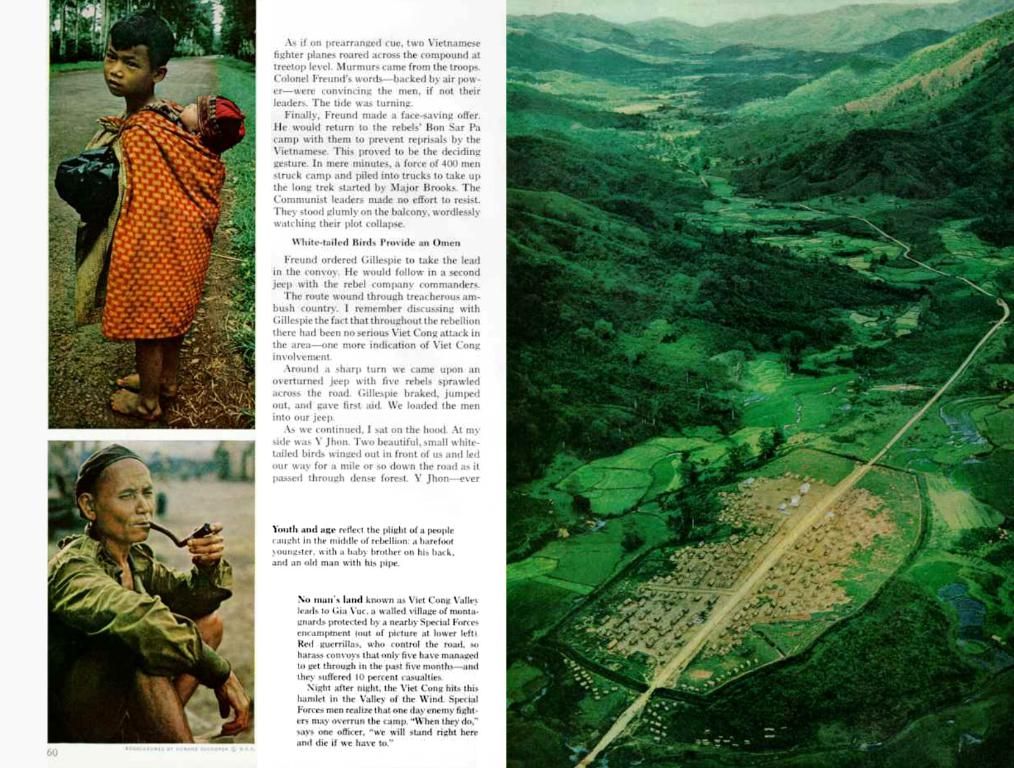Job Application Formats: CV vs Resume – Delineating the Key Distinctions
In today's job market, understanding the differences between a Curriculum Vitae (CV) and a resume is essential for a successful application process. Although both documents summarize an individual's expertise and qualifications, they serve distinct purposes and cater to varying contexts.
Curriculum Vitae (CV) vs Resume
A CV, which translates to "course of life" in Latin, is a comprehensive record of an individual's entire professional and academic background. It is typically longer than a resume, sometimes extending to multiple pages, and includes an in-depth account of a candidate's work history, education, research projects, publications, awards, grants, and even volunteer activities.
On the other hand, a resume is a concise one-to-two-page document that focuses on the candidate's key qualifications for a specific job. It serves as a tailored pitch, highlighting why the applicant is the ideal candidate for the position at hand.
Key Differences between CV and Resume
Definition and Length
A CV resembles a book of one's professional life story, hence its length can vary significantly and include every detail of their overall achievements. In contrast, a resume must be concise and sharp, aiming to draw attention to the most relevant skills and experiences that align with the job description.
Content and Purpose
A CV is often geared towards academic or research positions and showcases the candidate's expertise and depth of knowledge in a particular field. Meanwhile, a resume emphasizes how the candidate can contribute to a team in a more immediate context, making it suitable for roles in the private sector or for companies seeking directly applicable skills.
Formatting and Structure
Resumes adhere to a clear and concise structure with standard headings for work experience, skills, education, and so forth. This streamlined format helps recruiters quickly scan the document and identify the most impressive qualifications. CVs, however, allow more flexibility in terms of organization and can be formatted thematically or chronologically, depending on the individual's background.
Keywords and Updating
Resumes are often optimized with keywords from the job description to ensure they are recognized by applicant tracking systems. Given the significantly longer lifespan of a CV, it is less frequently updated and modified.
When to Use a Cover Letter or Resume
The choice between a CV and a resume depends on the nature of the job application. For positions requiring a comprehensive overview of academic and professional achievements, such as academic positions, research fields, highly specialized fields, and international applications, a CV is preferred. In most cases, however, resumes are the standard document used for job applications in the private sector across various fields and countries.
What to Include in a CV and Resume
Both CVs and resumes must include essential contact information. A CV details work experience, education, publications, presentations, awards, honors, language skills, and more. Resumes, meanwhile, concentrate on relevant work experience, Education (if necessary), skills, and keywords tailored to the specific job.
Optional Sections (Highly Recommended if Applicable)
In addition to the standard sections, a CV should include information on publications, presentations, awards, honors, languages, and research experience, among other relevant details. In a resume, sections such as references and personal interests can sometimes be considered if appropriate and applicable.
Choosing between a CV and a resume requires a careful evaluation of the job requirements and context. A thorough understanding of the differences between the two will increase your chances of crafting an effective application package that highlights your unique qualifications and helps you stand out in a competitive job market.
- In the realm of education and self-development, understanding the nuances between a Curriculum Vitae (CV) and a resume is crucial for career development, especially during a job search.
- For an education-and-self-development purpose, a CV serves as a comprehensive account of an individual's entire professional and academic background, while a resume is a targeted document emphasizing key qualifications for career-development in specific job-search scenarios.
- A career-development strategy might involveoptimizing resumes with job-search related keywords to ensure they are recognized by applicant tracking systems, while a CV, with its more lengthy lifespan, is less frequently updated and modified.
- In the process of skills-training for career-development, it's essential to recognize that resumes adhere to a clear and concise structure, making it easier for recruiters to scan and identify qualifications, whereas CVs offer more flexibility in terms of organization and formatting.
- To effectively demonstrate skills and experiences gained during education-and-self-development, a well-crafted resume or CV might include sections like work history, education, skills, and language abilities in both documents; whereas CVs can also include optional sections like publications, presentations, awards, honors, and research experience.








